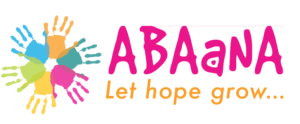“At first, I thought that one of my neighbours had bewitched her”
10 July 2018

‘I thought that disability was caused by witchcraft and that Mary’s disability was my fault. I cried every day and hated .. the burden she caused’ – Mercy, Uganda
The Global Strategy for Women, Children and Adolescents health (2016-2030) aims to improve the health and well-being of women and children around the world and support all children to ‘survive, thrive and transform’. This is the story of how one project in Western Uganda is looking past neonatal survival and supporting children with disabilities and their families, like Mercy and Mary, to thrive and transform their communities.
Mary was born two years ago in a small community health centre in western Uganda.
‘Pushing was really hard and it took such a long time’ her mother Mercy tells us. ‘Mary was really tired and weak when she was born, and the doctor sent us to another hospital for extra care, but that was over 150km away from home and my family. I was really scared and alone, and no-one told me what was going on. The staff eventually dismissed me, saying that she would be ok.’
The first few months were really difficult for both of them. The baby struggled to breastfeed, didn’t gain weight as she should and was always very quiet. Mercy became very worried when Mary was still floppy and weak at 6 months and making no attempts to sit on her own, or even hold her head up to look around, like all the other babies in the village were doing.
‘At first, I thought that one of my neighbours had bewitched her, and I was really resentful towards them. I spent a lot of money and time visiting [traditional healers] trying to find a cure.’
Sadly, Mercy’s story is not uncommon with millions of families in developing countries worldwide in a similar position, with no understanding of the causes or how to manage and care for a child with developmental delay and disability. Widespread local beliefs that disabilities are an untreatable curse lead to stigma, isolation, exclusion and significant financial and emotional burden. This creates huge barriers to accessing healthcare and support services leading to poor functional outcomes of the children.
After failing to find a cure with the traditional healers, Mercy visited her local health centre, feeling like it was her last chance for any help, hope was running out fast. But it turned out to be her lucky day. Irene was the nurse working in the clinic that morning, and she had recently attended a training day on Early Child Development and Disability, part of a project run by Kyaninga Child Development Centre and immediately made the referral.
Since 2014, a team of global health researchers at the London School of Hygiene & Tropical Medicine (LSHTM), have been working with families, health workers and researchers in Uganda to develop an early intervention programme for young children with developmental disorders. This work has been led by Dr Cally Tann, an Associate Professor at LSHTM and Consultant in Neonatal Medicine at University College London Hospital. Two years ago, a partnership was created between the UCLH Global Newborn Network and the Kyaninga Child Development Centre (KCDC), a non-governmental organisation based in western Uganda, to pilot and roll out this new ABAaNA Early Intervention Programme. The current DFID-funded project also focuses on strengthening facility-based newborn care across the district, focusing on neonatal resuscitation and care of the small and sick newborn to improve survival and reduce the risk of child disability after newborn conditions.

KCDC works to create equal opportunities for children with disabilities by providing affordable and accessible rehabilitation services, including physio, occupational, speech and orthopaedic therapy and special education support to over 1200 children in Western Uganda.
‘At KCDC they explained about the causes of disability and invited me to join the early intervention programme. Through the group I got my hope back, I understood more about what had happened and I met other mamas with babies like mine. I felt less stressed and more comfortable.’
Through this THET funded project, more than 120 health care workers have been trained on early identification of developmental disability across 4 districts in western Uganda. The result of this training is a 25% increase in referral rates for infants under 2 years, enabling KCDC to provide timely and appropriate support and intervention.
The EIP is designed so it can be run in settings without specialist therapy services, allowing the needs of children with disabilities and their families to be met in a low cost and effective way regardless of the level service provision.
Mercy goes on to tell us that through the EIP group she was able to address the challenge of feeding Mary and her malnutrition:
‘I learnt about feeding; before I didn’t know how to prepare foods properly for Mary and she vomited every time I tried to feed her, and she got thinner and thinner. I learnt that the food wasn’t smooth enough for her and was causing the choking and vomiting. Mary’s feeding has really improved now, she now longer vomits and can even now chew foods as well. She is finally getting fatter.’
The group also encourages play and optimal positioning for children with disabilities and encourages exercises and activities for development:
‘The exercises and positions that I learnt in the group helped so much, Mary is now sitting.’
As well as seeing positive changes in the physical abilities of all the children attending the groups, pre and post assessments of the mothers’ quality of life has shown on average 25% reported improvement, demonstrating the amazing impact of the programme.
Mercy found the group so beneficial that when the opportunity arose to become a facilitator she jumped at the chance to be able to support KCDC in reaching more families close to her community:


0 Comments
Leave a comment
Your email address will not be published.